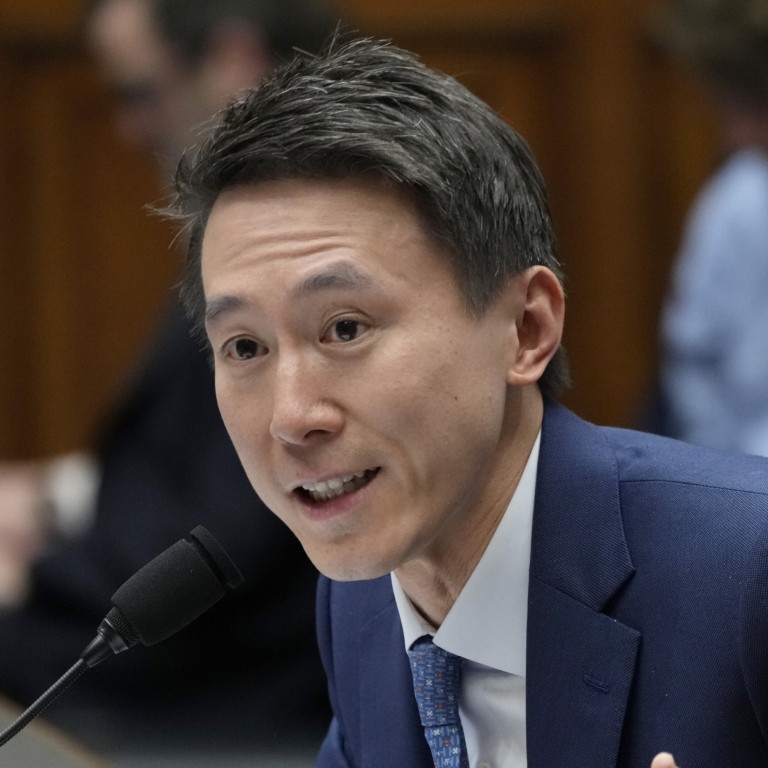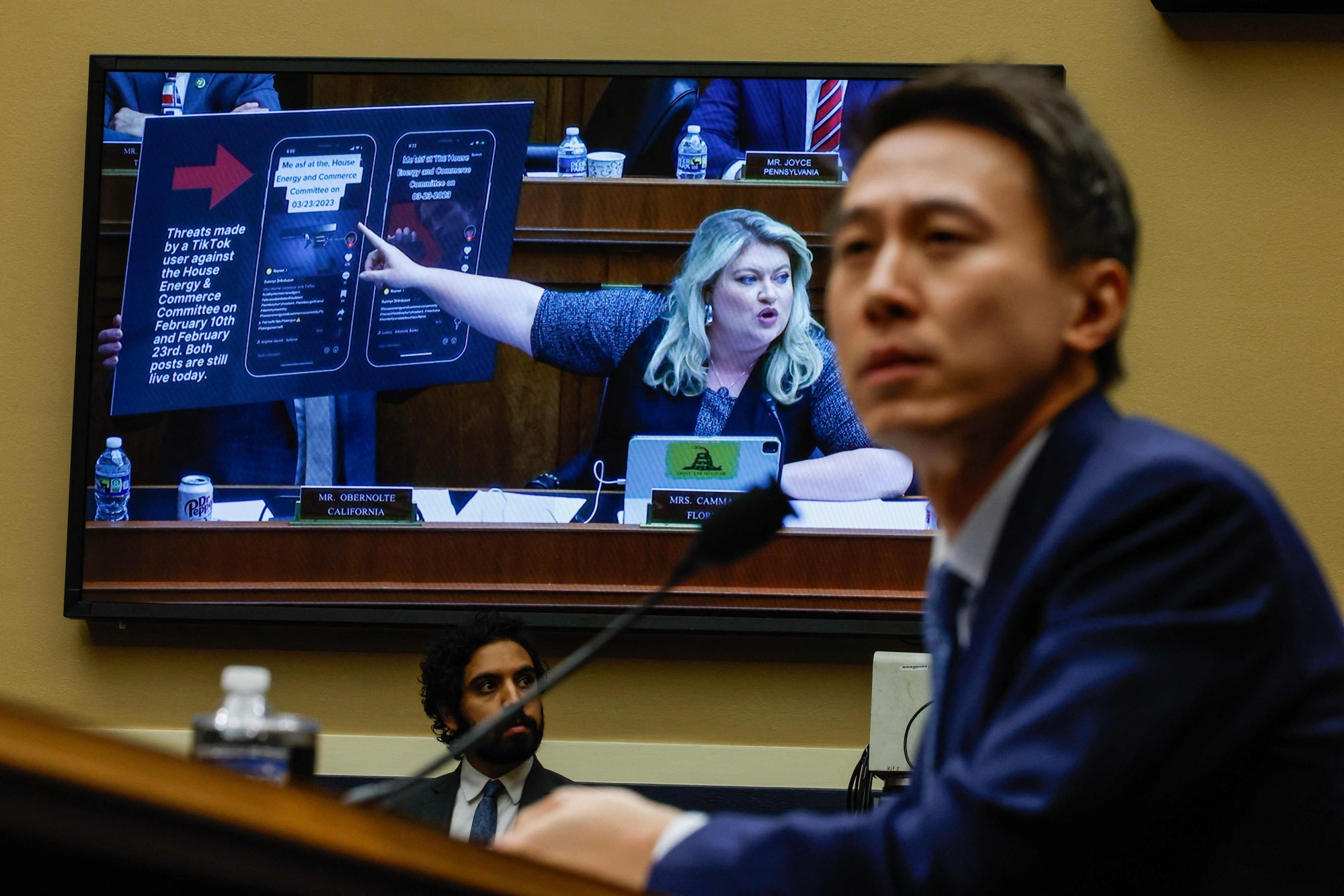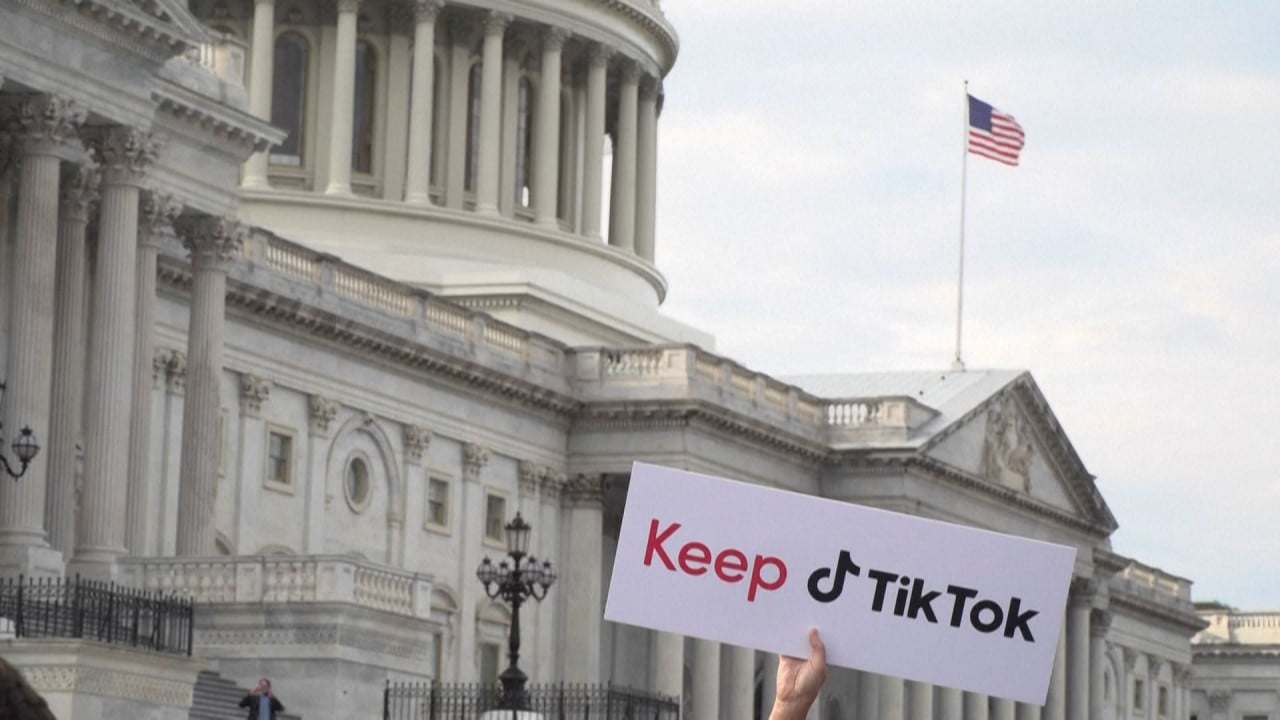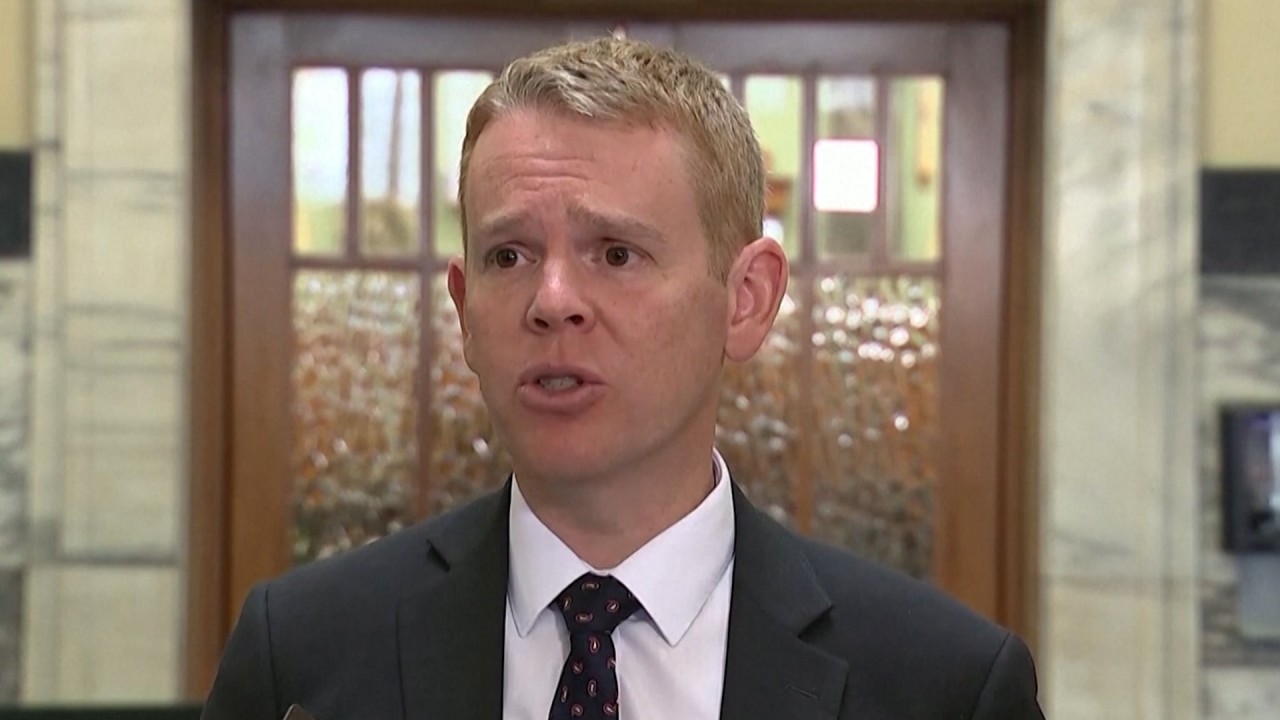
TikTok CEO Chew Shou Zi grilled by US lawmakers over ‘dangerous’ content amid calls for app to be banned
- Chew’s assurances about TikTok’s efforts to ensure data privacy and monitor content largely fall on deaf ears amid hostile questioning
- ‘TikTok surveils us all, and the Chinese Communist Party is able to use this as a tool to manipulate America as a whole,’ says chair of US House committee
TikTok’s chief executive weathered blistering questioning during a packed Congressional hearing on Thursday as US lawmakers grilled him on the app’s alleged ties to the Chinese Communist Party, danger to teenagers and risk to American national security and data privacy.
Chew told members of the House Energy and Commerce Committee in Washington that his hugely successful company was private, did not allow any government – including China – to manipulate its user data and was putting in place a US$1.5 billion programme to safeguard US data and monitor content.
But the hostile tone was set by the committee chairwoman before Chew uttered his first word and continued unabated.
“TikTok surveils us all, and the Chinese Communist Party is able to use this as a tool to manipulate America as a whole,” Representative Cathy McMorris Rodgers, a Republican from Washington state, said in her opening statement. “Your platform should be banned. I expect today you will say anything to avoid this outcome. … We’re not buying it.”
Chew repeatedly sought to convince the wary lawmakers of efforts by TikTok, which is owned by Beijing-based ByteDance, to address their concerns.
These include its “Texas Project”, a plan to house US data within a walled-off company jointly overseen by US software provider Oracle, and accelerated efforts to monitor and delete posts that fuel teen suicide, political violence and other objectionable content aided by a team of 44,000 screeners worldwide.
“Many of those measures are firsts for the social media industry,” said Chew, 40, who is from Singapore. “We believe we are the only the only company that offers this level of transparency.”
But Chew’s assurances appeared to fall largely on deaf ears. His case was dealt a further blow when Representative Kat Cammack, a Republican from Florida, pulled up a TikTok video that had been online for 41 days showing a gun firing repeatedly, with messaging specifically targeting Rodgers, the committee chairwoman.
TikTok’s CEO is set to enter a Washington fight he cannot win
“You expect us to believe that you are capable of maintaining the data security, privacy and security of 150 million Americans where you can’t even protect the people in this room?” asked Cammack.
“You’ve used the word transparency over a half a dozen times in your opening testimony and subsequently again in your answers to my colleagues,” she said. “Yet the interesting thing to me is that ByteDance, your parent company, has gone out of their way to hide and airbrush corporate structure ties to the CCP.”
During a short break, Chew ordered the video taken down and pledged to redouble the company’s vigilance.
TikTok has faced growing headwind since it entered the US market in 2018 and quickly outpaced rivals. The company’s US advertising revenue was US$11 billion in 2022, a 200 per cent increase over 2021, according to estimates by the eMarketer research firm.

The federal government and more than two dozen US states have banned government employees from using TikTok on official work devices, as have other state agencies in Europe and Canada. On Thursday, Britain became the latest, forbidding its use on all parliamentary devices.
Last week, the Biden administration threatened to force the app’s Chinese shareholders to sell to US owners or face a possible ban of all US users, reinforced on Thursday when Secretary of State Antony Blinken called TikTok a national security threat that “should be ended one way or another”.
Beijing has responded by accusing Washington of “abusing state power” and “suppressing related businesses”. China’s commerce ministry said on Thursday that forcing TikTok to change ownership “will seriously damage the confidence of investors from all over the world, including China, to invest in the United States”, adding that China would oppose any sale.
Lawmakers said this was further evidence of China’s control over the company and its store of personal data.
TikTok ban in US hinges on passage of new law that bolsters regulation of speech
In recent weeks, TikTok has honed a series of arguments in the fight over its existence, including the “joy”, business opportunities and global sharing enjoyed by its 1 billion users worldwide; the fundamental threat to US justice and fairness that a wider ban would embody; and company dedication to data protection and national security.
Chew’s bid to get his points across, delivered in measured tones, was challenged repeatedly by a stream of interruptions, scepticism, pointed reminders that making false statements to Congress was a federal crime and repeated demands to “just answer yes or no”.
Despite recent threats, the US could have trouble carrying out a general ban.

An effort by the Trump administration to bar TikTok in 2020 foundered, and any new effort could face similar legal challenges.
At issue are the relatively obscure Berman amendments, which date back to 1988 and were designed to ensure that presidents were unable to ban information and their distributors from then Cold War adversaries.
Further safeguards were added, including the expansion of First Amendment press freedoms to overseas digital media.
Even so, lawmakers and administration officials who favour the ban are walking a fine line as they try to curtail the app without setting a precedent that overseas governments could use to ban or seriously restrict Facebook, Twitter and other US-based social media platforms.
Thursday’s hearing came on a busy day in Congress, as a slew of other committees heard China-focused testimony on trade, security, technology, fentanyl, great power competition and human rights.
Fuelling the lawmakers is their reading of an increasingly wary electorate as US-China relations have plummeted.
Much of the frustration directed at TikTok on Thursday touched on broader legislative concerns as tech companies have grown huge and powerful and played an increasing role in election fraud, illegal drug distribution, stalking and other social issues. But its size and Chinese ownership proved a powerful magnet for criticism.
“This is not a problem unique to TikTok,” said Representative Diana DeGette, a Democrat from Colorado.
“But TikTok has 150 million users in the United States. And so I think you’ll agree that TikTok has a particular responsibility.”



